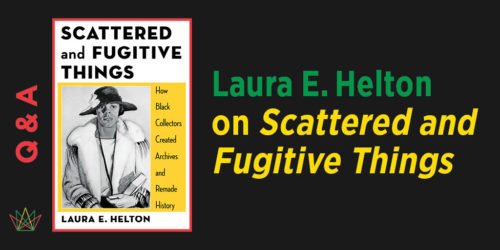How Mapping the Black Experience Will Shape Society for a Better Future
Olive Vassell and Natasha A. Kelly

“If you know whence you came, there is really no limit to where you can go.” With these words, writer James Baldwin captured the essence of the power of remembrance and commemoration: practices that unite and empower us, providing opportunities to consider the past and shape society for a better future.
James Baldwin spent several years of his life in Paris, with various excursions to Switzerland, Spain, and back to the United States. His time in Europe is reflected in his numerous novels, essays, and short stories. For members of the African diaspora, his words are of extreme importance. Mapping our histories, which are either deliberately hidden or at best distorted by the white-run societies where we live, is a probate method to shape society for a better future—whether we are located in the Americas, Europe, or on the African continent.
Across the African diaspora, memory activism has been key in the course of uncovering “unsung and unseen” histories. For example, the Juneteenth celebration in the United States was the result of community advocacy. Now a federal holiday, it marks the date on June 19, 1865, when enslaved people in Texas were first told they were emancipated, although they had technically been freed two-and-a-half years earlier. The push to create a national commemoration can be largely attributed to civil rights activist and state legislator Al Edwards, known as “Mr. Juneteenth,” who, in reference to this historic event, helped Texas become the first state in the country to make the abolition of slavery an official holiday in 1980.
Mapping our histories, which are either deliberately hidden or at best distorted by the white-run societies where we live, is a probate method to shape society for a better future—whether we are located in the Americas, Europe, or on the African continent.
In 1994, spurred by police brutality against Black people, a group of ministers in New Orleans founded the National Juneteenth Observance Foundation. “We were inspired by the horrific incidents [such as the videotaped beating] of Rodney King and the mistreatment of Black people by police in New Orleans and others around the country,” one of the cofounders, Rev. John Mosley, said in an interview with Time magazine. Then, in 1997, producer Cliff Robinson started the website Juneteenth.com as a clearinghouse for celebrations nationwide.[1]
Meanwhile in France, it was an association, Le Comité Marche du 23 mai 1998 (Committee for the March of May 23, 1998, or CM98), that moved the memory of the enslaved from society’s margins to a matter of state. The association was created after a collective of three hundred organizations, the Committee to Create a Combined Commemoration for the 150th Anniversary of the Abolition of the Enslavement of Negroes in the French Colonies, collaborated to mark the 150th anniversary of the abolition of enslavement and brought together forty thousand people on Paris’s streets to march in complete silence in memory of its victims.
The CM98’s mission includes “rehabilitating, honoring and defending” the memory of victims of colonial enslavement. Part of that effort has included naming two hundred thousand freed slaves from Guadeloupe, Guyana, Martinique, and Réunion following the abolition of slavery in 1848. “This action mobilized the memory of enslavement to address issues of community identity and resistance within the context of twenty-first-century republicanism. In so doing, they articulated a new kind of black identity in France”.[2]
To this day, Black German victims of the Maafa are not commemorated, despite calls from community organizations such as the Committee for an African Memorial in Berlin (KADIB), represented by the African/Black Community (ABC).
The Durban Declaration and Programme of Action, the document resulting from the world conference against racism, racial discrimination, xenophobia, and related intolerance held in South Africa in 2001, provided a legal basis for the French government to eventually establish the May 10th National Memorial Day to Slavery and Its Abolitions in 2006. In Germany this document was the catalyst for the annual day of demonstrating for a monument dedicated to the victims of enslavement, national socialism, as well as the structural racism of the postwar generation. To this day, Black German victims of the Maafa are not commemorated, despite calls from community organizations such as the Committee for an African Memorial in Berlin (KADIB), represented by the African/Black Community (ABC).
In the United Kingdom, Windrush Day, a national celebration marking the arrival of a large group of Caribbean people who came to England on the Empire Windrush ship in 1948, took years of community activism and a scandal to be instituted. The movement first gained prominence after activists including Patrick Vernon, a local government official of Jamaican heritage, launched a petition in 2013 to honor the contribution of these residents to the nation. Others in the effort included pioneers such as war veterans, the late Sam King, cofounder of the Windrush Foundation, and the late Alan Wilmott, who spoke about their early experiences living in London during the 1940 and 1950s.
The government finally supported establishment of the holiday five years later, at the height of the Windrush Scandal, a government anti-immigration policy that resulted in thousands of legal residents of Caribbean heritage being wrongly detained, denied their rights, threatened with deportation, and even removed from the country or refused reentry. The first government-supported Windrush Day was held on June 22, 2018, and a grant of up to £500,000 was awarded to support the celebrations.
These examples from Europe are all included in the newly published anthology Mapping Black Europe: Monuments, Markers, Memories, which articulates the lived experiences of Black Europeans in eight capital cities and underscores the importance of community activism and the production of knowledge from a Black European perspective. The work of the authors, all active members of their communities as academics, activists, and/or journalists, points to the value of connections between African diasporic communities in Europe and to existing opportunities for empowerment through global exchange.
Olive Vassell is a professor, journalist, and founder of the Black-focused BBrit Project and Natasha A. Kelly, PhD, is a best-selling author, filmmaker, theater director, professor, and founding director of Germany’s first Institute for Black German Arts and Culture. They are coeditors of Mapping Black Europe: Monuments, Markers, Memories.
[1] Olivia B Waxman. 2021. “Activists Are Pushing to Make Juneteenth a National Holiday. Here’s the History Behind Their Fight,” June 16, https://time.com/5853800/juneteenth-national-holiday/
[2] Itay Lotem. 2018, “Between Resistance and the State,” French Politics, Culture, and Society 36, no. 2 (Summer): 126–48 (Berghahn).
Related Posts
-

-

-

-

-

-

-

-
 African American / Black Studies / Behind the Scenes / Black History Month / Black Studies / Columbia University / Columbia University Press / Publishing
African American / Black Studies / Behind the Scenes / Black History Month / Black Studies / Columbia University / Columbia University Press / PublishingQ&A: Dr. Amy Yeboah Quarkume and Dr. Frank Guridy on Black Lives in the Diaspora: Past / Present / Future
A Howard-Columbia Intellectual Partnership
